Sons Of Iran's Judiciary Deputy Implicated In $400M Corruption Case
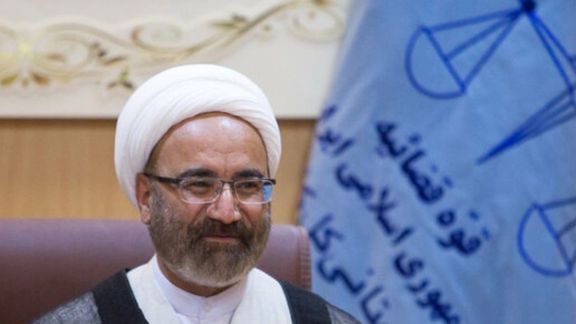
Two sons of Iran's first deputy head of the Judiciary are involved in a $400 million money laundering and corruption case.

Two sons of Iran's first deputy head of the Judiciary are involved in a $400 million money laundering and corruption case.
The sons of Mohammad Mosaddegh are facing a range of allegations, including the formation of a corruption network, money laundering, forgery of documents, and interference in judicial cases.
The news of the detention of his two sons, who have been confirmed as participants in this network, has recently come to light. Their apprehension follows the arrest of an individual approximately eight months ago, charged with smuggling, money laundering, and other infractions.
According to the IRGC-affiliated Tasnim News Agency, under the directive of the Chief Justice, an investigation was initiated, leading to the detention of eight individuals connected to the case so far.
In July 2021, shortly after Mohammad Mosaddegh assumed the role of first deputy head in the Judiciary, his two sons were implicated in the network. Mosaddegh, a clergyman born in Tabriz, has held various high-ranking judicial positions during his career.
During his tenure, Mosaddegh was ironically advocating judicial reforms. He made efforts to bolster his image for an anticipated presidential candidacy by launching media campaigns to showcase the changes and advancements within the judiciary.
In a previous case, another senior judiciary official, Akbar Tabari, was arrested in 2019 for leading a bribery network and personally accepting multiple bribes. He was sentenced to 31 years in prison.
Transparency International ranked Iran as the 150th out of 180 countries in its 2021 Corruption Perception Index, categorizing it as one of the world's most corrupt nations.
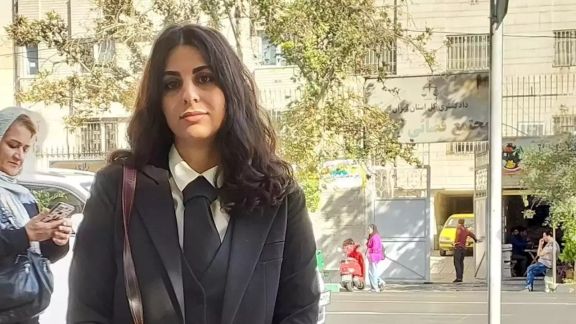
Anti-hijab ex-detainee Sepideh Rashno was denied presence at her own trial in Tehran after announcing on social media that she would not wear the hijab at the court.
In a brief statement, the judiciary said Rashno’s trial was held Monday morning. The statement published by the judiciary’s news agency, said Rashno was “absent” at the trial, so her defense was presented by her attorney. The Revolutionary Guards (IRGC) linked Fars news agency said Rashno has not made any comments about being refused presence at her own trial yet.
The artist, writer and editor who will turn 29 in a couple of weeks published a photo of herself with her hair uncovered on Instagram before attending the court Monday morning and said she was going to show up at the court to defend herself against the charges wearing the same clothing.
“[I will attend the trial] to defend myself for crimes that I have not committed, to defend the right to choose one’s clothing and [the right] to write about the things that have happened to me, to defend the right to be a woman, …,” Rashno said in her post.
“I know my family will lose their peace and come under various pressures from all sides but I know that the picture that you see is the truth and have no other choice than being committed to the truth,” she added.

Rashno was arrested on July 16, 2022, after a video of her quarrel with a woman verbally assaulting her for being unveiled on public transport went viral. She was later tortured into televised denunciation of her own actions and expressing regret for the quarrel. Even in the “confession” video her face was bruised showing signs of torture. She was released from Tehran’s Evin prison after about 40 days with a bail of about $27,000, a huge sum for ordinary Iranians.
The young activist was found guilty of “association and collusion with the intention of committing a crime against the country's security" and “propaganda against the Islamic Republic” and given a five-year suspended jail sentence in December but was charged again with “promoting moral corruption” and “propaganda against the regime” after posting an unveiled photo on social media.
She was also suspended for two terms by her university. "As a citizen, I have the right to choose the clothes I wear,” she wrote in response to the decision, adding that she plans to return to the university after her suspension with “her preferred outfit.”
A little over a year later, and after months of nationwide protests following the death of Mahsa Amini in the custody of the morality police, many more women of all ages have found the courage to publicly defy the compulsory hijab rules to the point that in many places being veiled looks stranger than being unveiled, people in Iran say.
Since the beginning of the new academic year last week, authorities have taken tougher measures to enforce the hijab rules in some universities including the use of facial recognition software. Students’ reports on social media indicate continued defiance despite the pressures and threats.
Stricter measures to enforce the hijab are being employed in other public arenas too including denying unveiled women entry to public transport. On Sunday a sixteen-year-old woman in Tehran lost consciousness when her head hit a pole following a dispute over her hijab with hijab enforcers who shoved her against a pole.
Shargh daily has reported that Maryam Lotfi, one of its reporters who followed the victim to the hospital to report the incident, has been arrested.
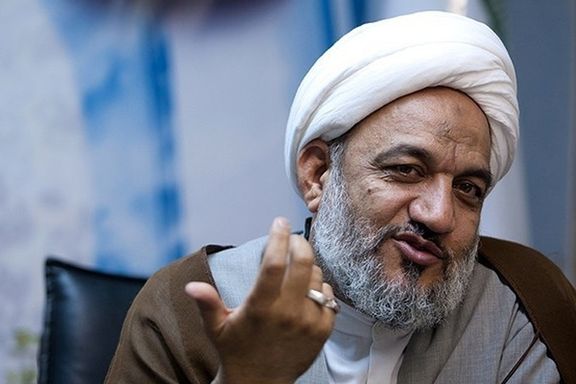
An Iranian MP has announced the allocation of over 20,000 hectares of land, with plans to allocate an additional 10,000 hectares to encourage childbirth.
Morteza Aghatehrani, the chairman of the Parliament's Cultural Committee, disclosed that as part of the population growth and childbirth support program, 200,000 cars have also been provided to eligible individuals. However, he did not specify the recipients of the allocations, raising questions about whether they were distributed fairly or exclusively to loyalists.
Amidst the widespread economic challenges that leave many struggling to make ends meet, Aghatehrani voiced apprehensions regarding the declining population trend, emphasizing that people frequently underestimate its importance.
Iran's population is shifting from a youthful demographic to an aging one, which poses challenges for the future. In recent decades, Iran has witnessed a steady decline in childbirth rates, with the population growth rate dropping from 4.8 percent in the early 1980s to below one percent in recent years.
Supreme Leader Ali Khamenei considers efforts to increase Iran's population as a top priority and essential policy for the Islamic Republic, given its position as a leading Shia country in the Muslim world.
Responding to Khamenei's call, the parliament, which is predominantly composed of hardliners, passed a law in March 2022 mandating state entities to actively promote marriage and childbirth. The law also banned public health services from providing family planning options.
Critics of the population increase policy argue that the Islamic Republic has failed to improve living standards, with figures indicating that nearly 50 percent of the population lives below the poverty line. Many others continue to face increasing economic hardships despite holding multiple jobs.
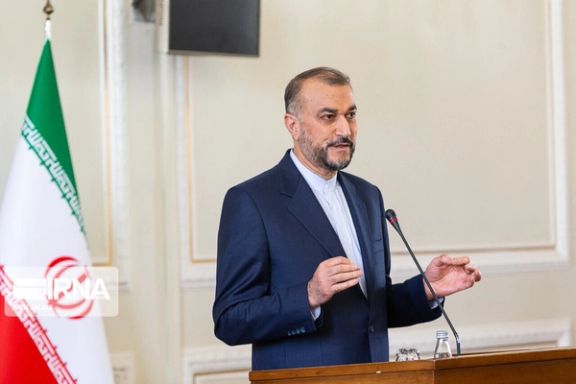
The Iranian Foreign Minister claims the US called for immediate deescalation after its airstrike which killed Quds Force commander Qasem Soleimani.
Hossein Amir-Abdollahian claimed that Washington sent a message calling for calm, in addition to claiming the US had made several offers following the death of Soleimani, suggesting that if the Islamic Republic did not react, some sanctions would be lifted.
However, it is unclear why the revelations are being made now since this has never been stated by Iranian officials before, and there have been no previous indications of it from either side to corroborate the latest claims.
Soleimani was killed in a US drone strike near Baghdad International Airport in 2020 on the orders of then-President Donald Trump, who said that the top military commander was actively planning attacks on American diplomats and service members in the region in addition to members of the administration.
Five days after Soleimani's death, Iran launched ballistic missiles at the Iraqi base hosting US troops. While no Americans were killed, there were reports of dozens of servicemen suffering concussion due to the powerful explosions.Since then, the Islamic Republic has maintained its threats of revenge for Soleimani including at a recent speech given by the Iranian president at the United Nations General Assembly.
Plots were discovered in the United States aimed at assassinating former US National Security Advisor John Bolton and former Secretary of State Mike Pompeo.
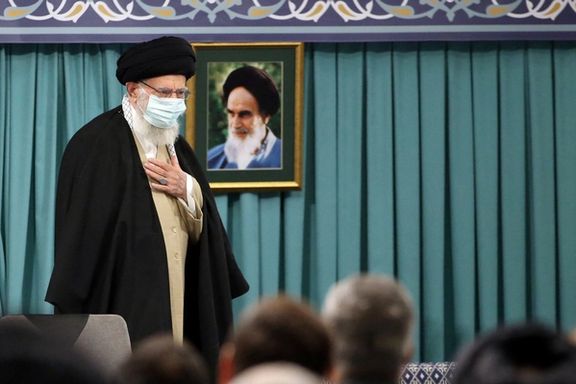
Iran's Supreme Leader, Ali Khamenei, has slammed countries seeking to normalize relations with Israel, claiming they are taking a risky bet.
In a bid to undermine the fact that regional countries are turning towards the Jewish state, he claimed on Tuesday that "The position of the Islamic Republic is that countries that make the gamble of normalization with Israel will lose. They are betting on a losing horse.”
The remarks come at a time when Saudi Arabia is hosting its second Israeli minister in the span of a week, and the United States is actively working towards the normalization of relations between Riyadh and Tel Aviv. In 2020, the US-brokered peace accords saw countries including the United Arab Emirates and Bahrain solidify ties with Israel, with huge economic benefit.
Khamenei recalled the words of Ayatollah Khomeini, the founder of the Islamic Republic, who characterized Israel as a “cancerous entity that would be eradicated by Palestinian and regional resistance forces,” though Israel had strong ties with Iran before the revolution, even helping Jews fleeing persecution in Iraq on their journey to Israel.
Last month, the Israeli foreign minister mentioned the possibility of a framework for establishing relations between Israel and Saudi Arabia, brokered by the US, being in place by early next year. This potential Israeli-Saudi normalization could significantly reshape the Middle East, aligning two major US allies against Iran.
While Iran re-established diplomatic ties with Saudi Arabia earlier this year, Iranian officials have consistently criticized Riyadh's efforts to establish relations with Israel, viewing it as detrimental to the Palestinians.
Tehran supports militant Palestinian groups, including Hamas and the Islamic Jihad, which have escalated their attacks against Israel and its civilians this year. The groups are part of Iran's network of proxy forces spanning from Iraq to Lebanon and Yemen, receiving both financial and military support from Tehran, which the Iranian government openly acknowledges.
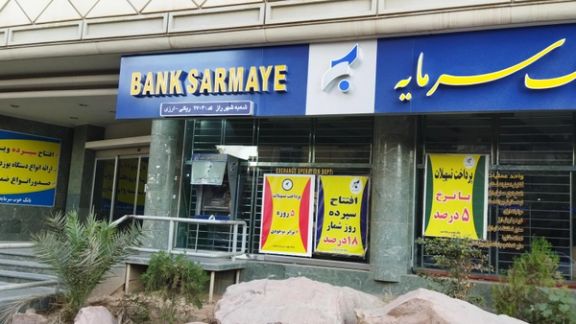
Despite central bank denials, Iranian Sarmayeh (Capital) Bank and two financial institutions, Nour and Caspian, are reportedly on the brink of dissolution.
Sarmayeh Bank, affiliated with the Teachers' Saving Fund, reported a net loss of over $160 million in the 12-month period ending in March. The cumulative loss of the bank totals over $960 million.
The bank has been embroiled in numerous corruption cases in recent years, involving 400 suspects, some of whom were family members of political officials in the Islamic Republic at various times.
Government interventions, excessive borrowing, and a lack of transparency and accountability in the banking sector are cited as other significant factors contributing to the bankruptcies.
The reports about the liquidation of the struggling banks have been circulating for a while. In August, the central bank officially warned of the risk of bankruptcy for Sarmayeh Bank, stating, "If the bank's board of directors and shareholders fail to take measures to increase the capital adequacy ratio, the bank will be subject to special penalties and restrictions, and it must present a clear plan to address its chronic imbalance."
However, similar to many other decisions in Iran, the liquidation never materialized, possibly to prevent causing widespread panic among the already distrustful population regarding the country's banking system.
Previously, Ayandeh (Future) Bank had been mentioned as one of the banks under consideration by the central bank for either dissolution or merger, which faced objections from central bank authorities.